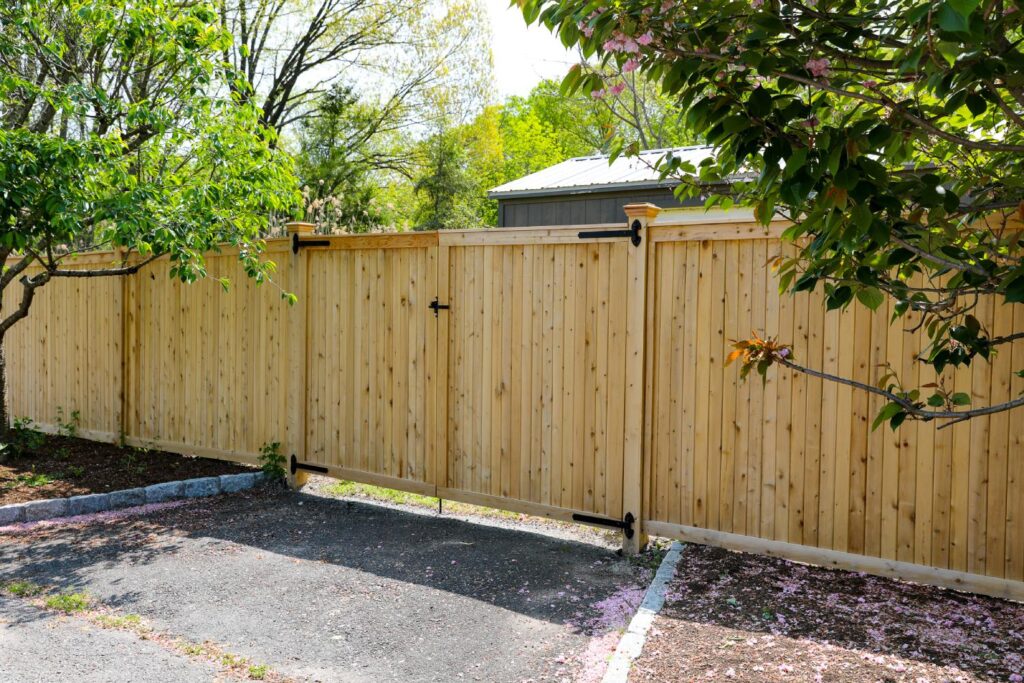All Categories
Featured

When it pertains to selecting the very best fencing material for sturdiness, functioned iron sticks out as one of the most reliable and resilient options available. Understood for its stamina, visual appeal, and ability to withstand different weather, wrought iron is a prominent choice for both property and commercial residential or commercial properties. Just how does it compare to various other fence products in terms of long life and efficiency? Allow's take a better check out wrought iron fence and how it stacks up against choices like timber, vinyl, and light weight aluminum.
Toughness and Durability of Wrought Iron Fence. Unlike many various other secure fencing alternatives, functioned iron can sustain extreme ecological problems, including extreme warm, heavy rainfall, and also strong winds. Due to the fact that it is a metal, functioned iron is not vulnerable to the wear and tear that timber fencings typically experience, such as decomposing, warping, or insect problems.
Durability: Wrought iron fencings are incredibly difficult and can hold up against influences and various other types of physical tension that may damage other materials. When appropriately kept, they can last for 50 years or more, making them an investment that will offer long-term value.
Wrought Iron vs. Wood Fence. Wood fences, while traditional and aesthetically pleasing, typically need even more maintenance and have a shorter lifespan compared to functioned iron. Wood is prone to rot, termites, and weathering over time, every one of which can endanger its structural stability. On top of that, timber fencings might require to be replaced or fixed every 10 to two decades, relying on the environment and the sort of wood made use of.
Upkeep: While timber fences need to be regularly treated with sealants, stains, or paints to preserve their appearance and longevity, functioned iron fencings typically need much less maintenance. They might require periodic cleaning or repainting to stop rust, particularly in coastal or moist areas, yet they will not experience from the exact same kinds of degradation as timber.
Long life: While a well-kept wooden fencing could last 20 to thirty years, functioned iron can surpass that life-span by numerous decades, making it a much more long lasting option in the lengthy run.
Wrought Iron vs. Plastic Fencing. Vinyl fence has come to be a popular option to wood because of its reduced upkeep and resistance to the aspects. Unlike timber, plastic does not rot or warp, and it does not need to be repainted or dealt with. Nonetheless, vinyl can end up being fragile in time, especially in regions with severe winters months or severe UV exposure. It may break or crack under pressure, such as from a hefty impact or an extreme storm.
Toughness: While plastic is resistant and fairly sturdy to rot and fading, it still can't match the lasting toughness and strength of functioned iron. A plastic fence might last around 20 to 30 years, depending on environmental factors, but it lacks the structural honesty that wrought iron supplies.
Maintenance: Vinyl requires minimal upkeep compared to timber, but it can still fade over time, specifically in locations with intense sunlight exposure. Wrought iron may require occasional rust prevention therapies however typically needs fewer interventions than plastic.
Wrought Iron vs. Light Weight Aluminum Fence. Light weight aluminum is another steel choice to wrought iron, and while it shares some of the longevity qualities of functioned iron, it is generally less tough and strong. Aluminum is extra resistant and light-weight to rust and deterioration, making it a prominent selection for low-maintenance secure fencing. It's not as solid as functioned iron and may be extra susceptible to nicking or flexing under pressure.

Longevity: Wrought iron is substantially more powerful and much more sturdy than light weight aluminum. While light weight aluminum fences can last for numerous years, they may not stand up also in high-impact or high-traffic areas. In contrast, wrought iron is a lot more immune to physical damages and can better withstand pressure and force.
Upkeep: Both wrought iron and light weight aluminum fences call for some maintenance, largely to avoid rust. However, aluminum is less likely to corrosion than functioned iron, making it a much more low-maintenance choice in areas with high humidity or seaside salt direct exposure.
Final Ideas: Wrought Iron's Durability Advantage. Wrought iron stands apart as one of the most resilient fencing products readily available, outperforming timber, plastic, and aluminum in terms of toughness, durability, and general efficiency. While it does call for periodic upkeep, especially to avoid rust, its ability to hold up against severe climate condition, physical stress, and the examination of time makes it an exceptional financial investment for businesses and homeowners looking for a lasting, safe fence option.
For those who focus on strength and longevity most of all else, functioned iron is an unsurpassable choice. Whether you're protecting a house, improving the look of your lawn, or offering safety for a commercial site, wrought iron secure fencing will certainly offer decades of durability and visual charm that few various other products can match.
Latest Posts
Explore Limited-Time Auto Repair Offers in Chicago at Montclare Auto Repair
Published en
1 min read
Explore Auto Services & More: Complete Auto Care Solutions from Montclare Auto Repair
Published en
1 min read
Specialist Residential Roof Solutions You Can Count On
Published en
1 min read
More
Latest Posts
Explore Limited-Time Auto Repair Offers in Chicago at Montclare Auto Repair
Published May 27, 25
1 min read
Explore Auto Services & More: Complete Auto Care Solutions from Montclare Auto Repair
Published May 27, 25
1 min read
Specialist Residential Roof Solutions You Can Count On
Published May 25, 25
1 min read